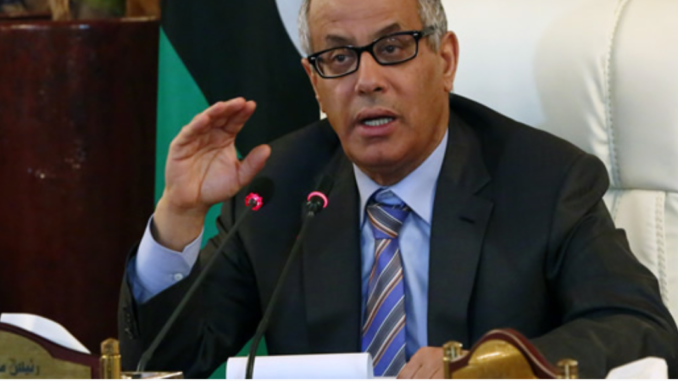
THE lingering crisis in Libya has reached a critical stage where responsible members of the international community can no longer afford to stand by and watch with indifference. Needless to say, all the global leaders should feel obliged to step in and arrest what is becoming an inexorable drift into anarchy, for the sake of humanity and the prevention of a colossal humanitarian tragedy.
Although some countries have just rounded off a conference in Berlin, Germany, where resolutions centred on how to avert a further escalation of violence in Libya, it is a summit that came a bit too late. A lot of damage has been wrought in Libya, once a prosperous oil rich country. For close to one decade, the North African country has been a theatre of violence where many lives have been wasted and numerous militia groups have been spawned, calling the shots from their fiefdoms in different parts of the country.
What started off as a part of the Arab Spring, the pro-democracy protests that swept across North Africa and parts of the Middle East in 2011, has snowballed into a proxy war, with the two main combatants holing up in the East and West of the country. The Government of National Accord, recognised internationally and headed by Fayez al-Sarraj, is at war with the Libyan National Army, under the leadership of Khalifa Haftar, a former general under Muammar Gaddafi.
Countries such as Turkey, Qatar and Italy have given their backing to Sarraj, who is fighting tooth and nail to keep the capital, Tripoli, while Egypt, France, the United Arab Emirates, Russia and Jordan are queuing up behind the LNA, which seems to be stronger and the more aggressive. Libya has become a turf for the peddling of regional and economic influence.
Amid this state of flux, Turkey is not just content with offering support from behind but has decided to enter the fray by sending troops to Libya, to shore up the regime of the Tripoli-based, United Nations-recognised GNA. After a fragile arrangement between the East and West of the country broke down in 2015, Tripoli has come under a series of bombardments by Haftar’s troops planning a takeover of the capital. By sending troops into Libya, however, Turkey’s Recep Tayyip Erdogan risks escalating an already tense atmosphere, and driving a fractured and unstable country to the brink of a full-scale civil war. The international community has to ensure that this is averted by seeing to it that there is no reciprocity by backers of the other faction.
Since the death of long-time leader, Gaddafi, in the United States-led, NATO-backed revolution in 2011, Libya has undeniably become a failed state. Between April and October last year, the World Health Organisation said over 1,000 people were killed and 120,000 displaced in the country. While the East and West are under the control of the GNA and LNA, the vast desert in the South has been taken over by militia and terrorist groups, especially the Islamic State and al-Qaeda terrorists chased away from Syria, Iraq and other parts of the Middle East. That part of the country has become no-man’s-land and a destabilising influence on both the northern part of Libya and the neighbouring countries of West Africa.
Turkey’s actions in Libya, though condemnable, have been justified on the grounds of a military treaty ratified by the two parties on November 27, last year. While Israel, Greece and Cyprus, in a joint statement, described Erdogan’s action as a threat to regional stability, Egypt sees it as a national security issue, as Turkey is deemed a backer of the Muslim Brotherhood, whose adversarial disposition towards the Egyptian leader, Abdel Fattah al-Sisi, is well known.
It is unfortunate that the US has refused to take charge of the process of restoring Libya to a stable and functional entity, despite its role in ending Gaddafi’s 42-year, iron-fisted reign. America owes the Libyans a duty in this regard. America’s hurried departure left the country at the mercy of gunmen that fought in defence of the former tyrant, Gaddafi. A mop-up of weapons would have prevented the proliferation of the arms and ammunition, currently at the root of instability across many West African states, including Nigeria.
Three national elections have failed to produce a clear winner, which many believe could have helped to reunite Libya, ending the chaos that has now enveloped the entire land. While many see Sarraj as weak and incapable of playing that role, those who believe Haftar could fit in are also afraid that the latter, whom they regard as a dictator, would only take them back to the dark days of the Gaddafi tyranny.
At this stage, it is obvious that there may never be a military solution to the crisis; only a negotiated solution can restore peace to the violence-torn country. This is what the Berlin Conference has offered. A very important step is the decision to ask for a permanent ceasefire, while the UN pursues its agenda of ensuring that fresh elections hold. It is also important that those supporting the warring factions have decided to freeze the flow of weapons.
Even though not the first of its kind, the conference, which attracted top European leaders or their representatives, the US and some Middle East countries, will go a long way in de-escalating tensions in Libya and ensuring a permanent cessation of hostilities. If the US is serious about it, it can put pressure on the countries to freeze the flow of arms, which is fuelling the conflict.
Ultimately, organising elections in which the people choose their own leaders, will go a long way in bringing sanity to Libya and preventing it from becoming a breeding ground for terrorists and a transit point for migrants seeking to cross the Mediterranean to Europe.
END

Be the first to comment